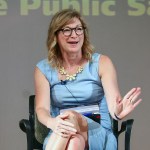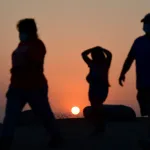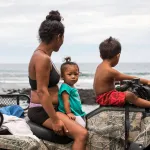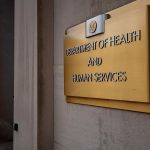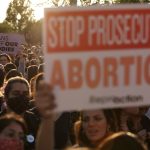Latest from Jessica Kutz
-
Prosecutor explains what preparing for a future of post-Roe abortion cases might look like
Jean Peters Baker is part of a project that aims to educate other prosecutors across the country over how to navigate this new legal arena.
-
In Arizona, legal confusion halts abortion services at Planned Parenthoods
The largest abortion provider in Arizona feels it’s too dangerous to continue with procedures after the Supreme Court decision, even as state laws are unclear.
-
Digital activists are using Wikipedia to change the narrative around women and climate work
The effort aims to chip away at the invisibility of women, women of color and LGTBQ+ people on Wikipedia – particularly in the climate sphere.
-
The 19th Explains: How pregnant people can prepare for a summer of heat waves
A growing body of research over the last decade points to the impact extreme heat has on maternal and fetal health.
-
Pushed by lawmakers and the formula shortage, FEMA boosts efforts to support breastfeeding families during disasters
The agency makes it more clear that parents qualify for reimbursement if they need breast pumps and other resources to keep their babies fed.
-
Biden’s new environmental justice office aims to tackle the health impacts disproportionately faced by people of color
The interim director of the Office of Environmental Justice in the Department of Health and Human Services joins a growing list of women of color tapped to work on these issues.
-
Climate change is forcing care workers to act as first responders
A new pilot program in California aims to provide the training and resources they need to take care of their clients and themselves. But advocates say increased responsibility should equal more pay.
-
Pushback on Louisiana’s scuttled abortion bill reveals a limit on how far anti-abortion groups are willing to go
The law would have classified abortion as a homicide, which was a 'bridge too far' for Louisiana lawmakers, said one expert.
-
Union president on why care work is inextricably linked to challenges of climate change
Mary Kay Henry, the SEIU’s first woman president, says a stable care force could help communities adapt to and survive natural disasters.
-
As climate change worsens hurricane season in Louisiana, doulas are ensuring parents can safely feed their babies
A doula collective is training emergency responders from across the state in best practices, filling a crucial gap in disaster response.

